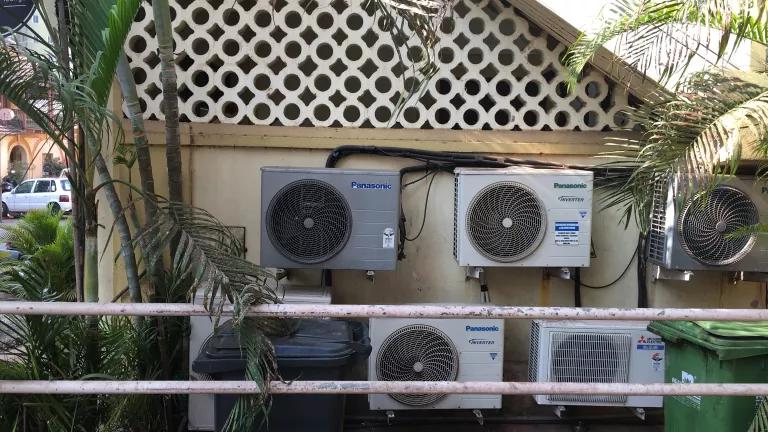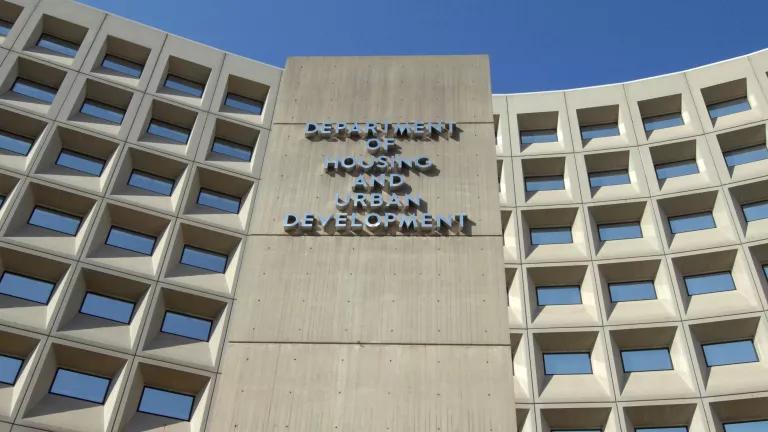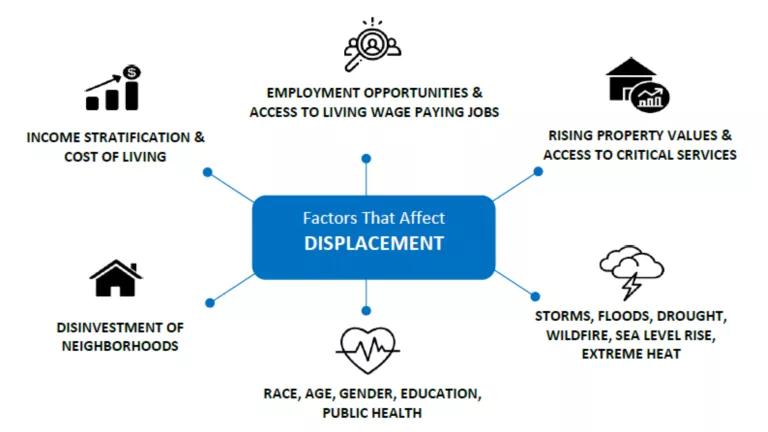In Searing Heat, Efficient and Lifesaving Cooling Is Vital
Novel research at the intersection of climate and health in India

Climate change-fueled extreme heat is expected to heighten demand for lifesaving air conditioning in India (Credit: NRDC)
The climate crisis is fueling stronger and longer heatwaves. New research in India explores how higher temperatures drive demand for air conditioning.
With global temperatures are soaring because of climate change, demand for electricity to keep people cool and safe from sweltering heat is critical. But depending on how we power that electricity, using dangerous fossil fuels or cleaner and renewable energy sources, we may also worsen the burden of dangerous air pollution. Understanding these complex effects of climate change on public health is an urgent task, and new work is underway to better describe the problem at a local level in India.
Climate Change-Fueled Heat Spikes Demand for Cooling
Air conditioning saves lives. It’s a proven strategy to reduce indoor temperatures and reduce the stress that hot temperatures place on our bodies. But the electricity sources used to power air conditioners, such as coal, can also contribute to outdoor air pollution from fine particulate matter and ozone smog.
The World Health Organization estimates that more than 90% of the world’s population is exposed to dangerous levels of air pollution, and that 3.1 million people die early each year due to chronic exposure to polluted air. As the climate crisis accelerates, it’s more important than ever to understand how a warmer world could worsen existing health risks from air pollution, if we don’t take appropriate actions to harness renewable energy for our growing needs for electricity.
Emerging Research to Understand Health Threats
Because this problem has potentially far-reaching consequences, scientists are increasingly working to understand it in more detail. For example, a team of researchers published a study in 2018 analyzing the energy demand, air pollution, and health impacts of mid-century heat waves across the eastern U.S. That work found that climate change and increased energy demand could worsen summer air pollution from fine particulate matter (PM2.5) by about 60 percent and ground level smog by about 16 percent, compared to current pollution levels. The study estimated that if today’s fossil-fuel heavy mix of energy sources was deployed to meet extra energy demand for air conditioning, it could cause nearly 1,000 deaths each year from worsened air pollution.
And that’s in just one region of one country. While millions of people around the world already breathe unhealthy air, climate change threatens to make this problem even worse unless we act to stem the problem on a broader scale.
Rising Cooling Demand in India
India currently copes with brutally hot weather and dangerous levels of outdoor air pollution. India’s cooling demand is projected to grow by 8 times in the next 20 years, and the country last year launched a comprehensive plan to meet the country’s skyrocketing cooling demand with the India Cooling Action Plan (ICAP). The ICAP supports five key goals:
- improving understanding of the implications of increased cooling demand through applied research
- reducing cooling demand across sectors
- reducing energy requirements of appliances
- reducing demand for refrigerants
- improved training and certification of servicing sector technicians.
Understanding Air Quality and Health Impacts in Ahmedabad
In terms of the first ICAP goal, while it’s been known for some time that these intersecting risks could worsen public health in the country, it’s also been hard to quantify that problem due to the range of skills and data sources needed to align work across climate, energy, environmental, and health sectors.
That’s why NRDC is proud to collaborate with leading Indian scientists and policy experts on an applied research project funded by the Wellcome Trust’s Our Planet, Our Health Program to estimate the health benefits of climate change response actions at the city level.
Using an interdisciplinary modelling approach, our team we will quantify the air quality and health co-benefits of climate change mitigation and adaptation policies in Ahmedabad, India in collaboration with the Indian Institute of Tropical Meteorology (IITM), Gujarat Energy Research and Management Institute (GERMI), Public Health Foundation of India/Indian Institute of Public Health-Gandhinagar (IIPH-G). Leading Indian scientists at GERMI and IITM are doing work to estimate total electricity demand in 2030, considering climate change-driven temperature increases and models forecasting demand for air conditioning.
Experts at IITM and IIPH-G are also working to model and compare air quality associated with two climate change response strategies: shifting fossil fuel use to solar energy; and expanding cool roof and green landcover interventions in Ahmedabad. Working together, our team will also use local air quality data and air quality forecasts to estimate the health impacts in 2030 of these different climate change response strategies, and the health benefits of climate change .
Because this research is designed within the context of the ICAP and India’s national climate strategy goals, it can help to make the case for expanded action and ambition to address the climate crisis and improve public health in the near-term.
Upcoming Webinar Spotlights Air Pollution and Health
As the planet continues to warm, keeping people cool and healthy takes on increasing urgency. At an upcoming webinar on October 15, leading experts will convene and provide further information on this ongoing study, and describe the connections between air pollution, and public health in the context of the COVID-19 pandemic. Featured speakers include:
- Gina McCarthy, NRDC President and CEO, NRDC
- Dr. Dileep Mavalankar, IIPH-G Director
- Dr. Gufran Beig, IITM Programme Director and Senior Scientist, SAFAR Programme
- Akhilesh Magal, GERMI Head – Advisory, Renewable Energy, Environment and Energy Efficiency
- Dr. Kim Knowlton, NRDC Senior Scientist and Science Center Deputy Director
Click here or on the image below for webinar registration details.

This work is supported by the Wellcome Trust [Grant #216093/Z/19/Z].




